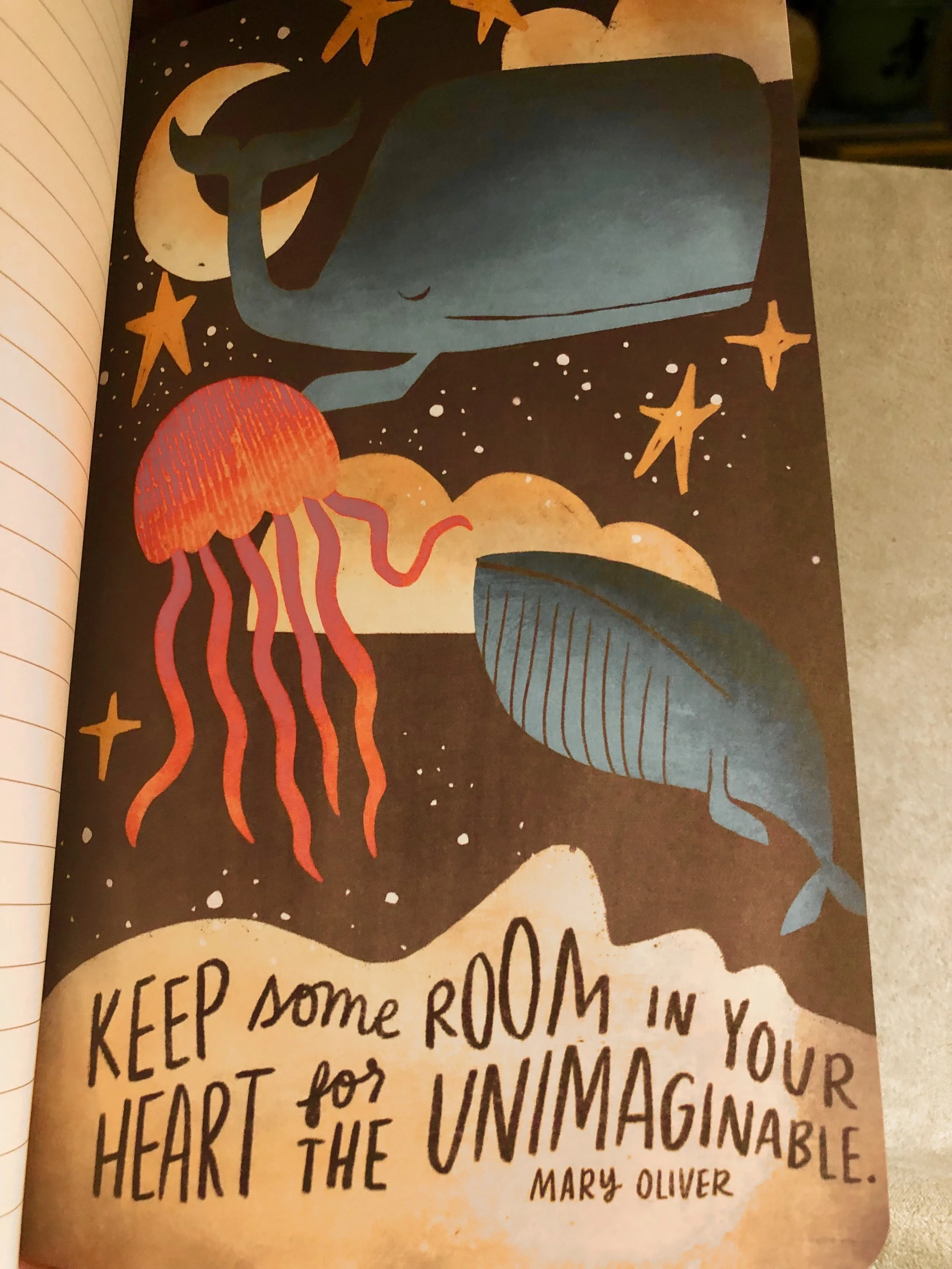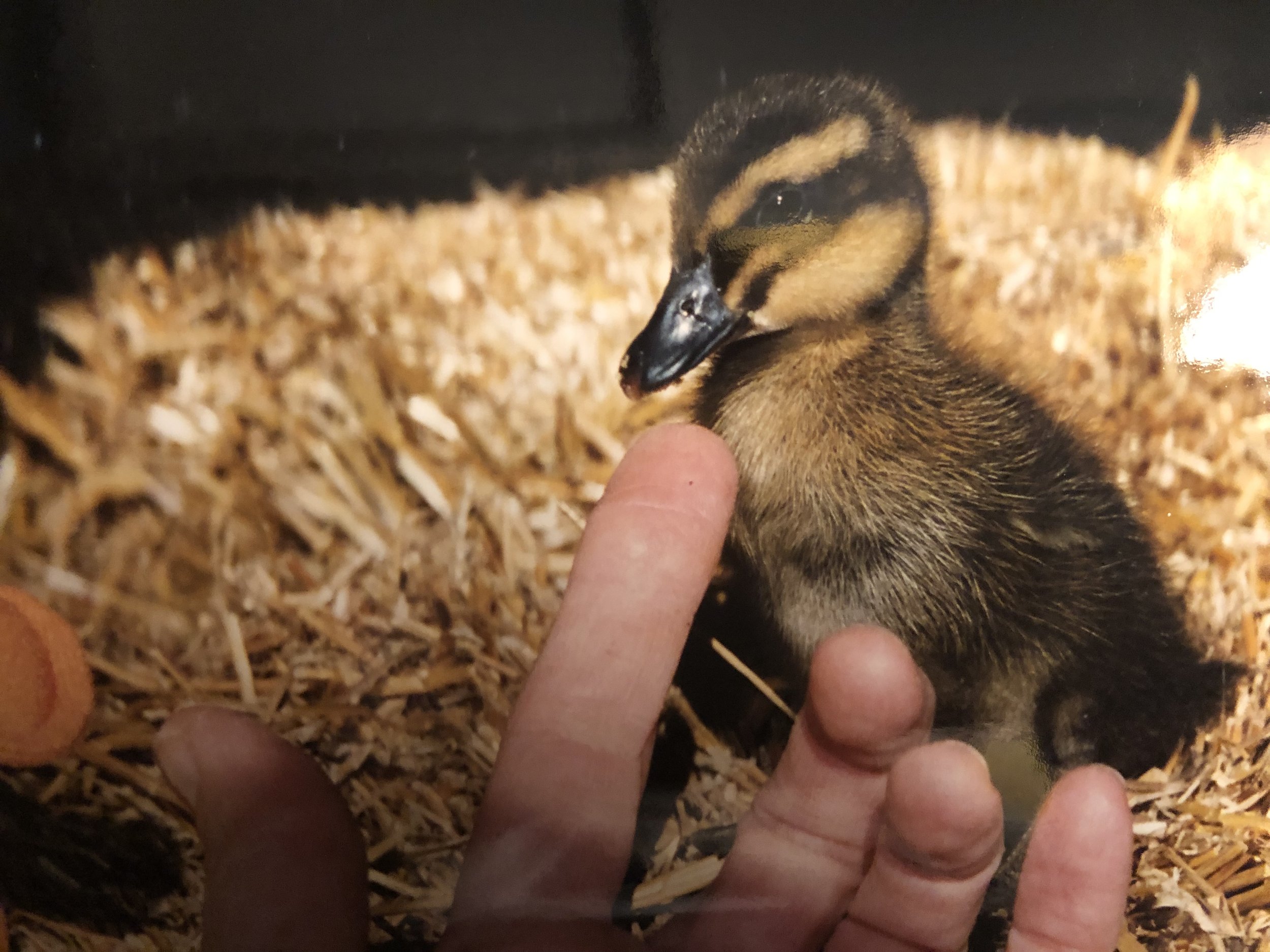Striving for Harmony
I recently read a poem by Mary Oliver that reminded me of how essential it is to connect with nature when the world is too much with us. It is entitled “With Thanks to the Field Sparrow, Whose Voice is So Delicate and Humble.”
I do not live happily or comfortably
with the cleverness of our times.
The talk is all about computers,
the news is all about bombs and blood.
This morning, in the fresh field,
I came upon a hidden nest.
It held four warm, speckled eggs.
I touched them.
Then went away softly,
having felt something more wonderful
than all the electricity of New York City.
— Mary Oliver
Her poem reminds me of the time when I hatched a duckling and named him Gilbert. At that moment I too felt something more wonderful than all the electricity of New York City.
Another writer, American historian and author Heather Cox Richardson, reminds me that a knowledge of history matters. Reading her nightly newsletter, “Letters from an American,” helps her readers understand current events in the larger context of American history. As a nation, we are tuned 24/7 to all manner of instant news media. We watch scenes of war, racial strife, and natural disasters with eyes glued and hearts pounding. When storms hit regions of the country distant from us, we give thanks that we were not affected while feeling that there must be something we can do to help those who are suffering.
A decade ago, the nation’s collective attention was focused on a deadly storm of another kind—one born of racial tensions too long seething under our nation’s skin of many colors. Michael Brown, an 18-year-old unarmed black man was shot multiple times and killed by a white policeman in Ferguson, Missouri, a predominantly black suburb of St. Louis. All too often, the deadly spark that has historically ignited racial rioting in American cities and towns has been the same—an unarmed black youth is killed by a white policeman in a minority neighborhood where racial tension and distrust of local police had been festering for decades. Ferguson woke us up.
In dark times like this, deep-seeded anger divides us. When calm was finally restored in Ferguson, America’s monumental task was to address how we as a nation can heal our racial divide, and how to revitalize inner city deserts where poverty and unemployment rates are high and potential human energy languishes. In 2023, America is still divided along racial line. If we are ever to achieve racial harmony as a nation, the rebuilding of trust as well as infrastructure and opportunity must continue to take place.
But how? What is our collective response when devastating acts of nature strike? Thirty years ago, such an event is the reason I became a writer. Kit and I were in Washington, D.C. during the month of July when the Great Midwest Flood of 1993 was underway. Angry waters along the bottomlands in Missouri rose, sending debris and muddy flood water into our town and the homes of our farmer friends. That month, my friend Susan Fifer Canby—head librarian at the National Geographic—provided me with newspaper articles on the disaster.
By August when the waters began to recede, we joined volunteers who came to our town of Hartsburg to rebuild the devastated community. Volunteers stayed a day or week or however long they could. Local Amish women cleaned houses. Amish carpenters, driven by a retired Pennsylvania postal clerk, arrived with tools and skills sorely needed. Two African American plumbers arrived with their trucks and plumbing tools wearing cowboy boots. They were among a team of New Jersey plumbers who’d seen Missouri towns inundated on their TVs and saw homes swept away. Grateful to have been spared, hundreds of volunteers lent a helping hand over the next three months to complete strangers and friendships were fostered that continue to this day.
This Christmas, you will be able to experience Daniel James Brown’s powerful historical novel The Boys in the Boat in theaters around the country. It is the story of an unlikely American rowing team from the University of Washington and their against-all-odds quest for gold at the 1936 Berlin Olympics. Before arriving as freshmen, they’d spent their hard-scrabble youths working in logging camps, fishing towns, and on dairy farms. In the depths of the Great Depression, their families struggled through financial hardships and depravation.
Rowing, a physically and mentally demanding sport, became their solace during hard times. From their dedicated rowing coaches and one extraordinary shell maker, the nine young men learned lessons they never forgot. Rowing is about hard work, pitching in and pulling together—no matter where you come from, or how hard your life has been. Ironically, whenever it seemed weather conditions or life couldn’t get any worse, they rowed their best races.
Imagine. If we as Americans put our collective minds to the task, persevere through pain, and learn to row as one, something extraordinary just might happen. It is a state of grace called harmony—fundamental and achievable in nature and rowing, but sadly all too rare in America today.






